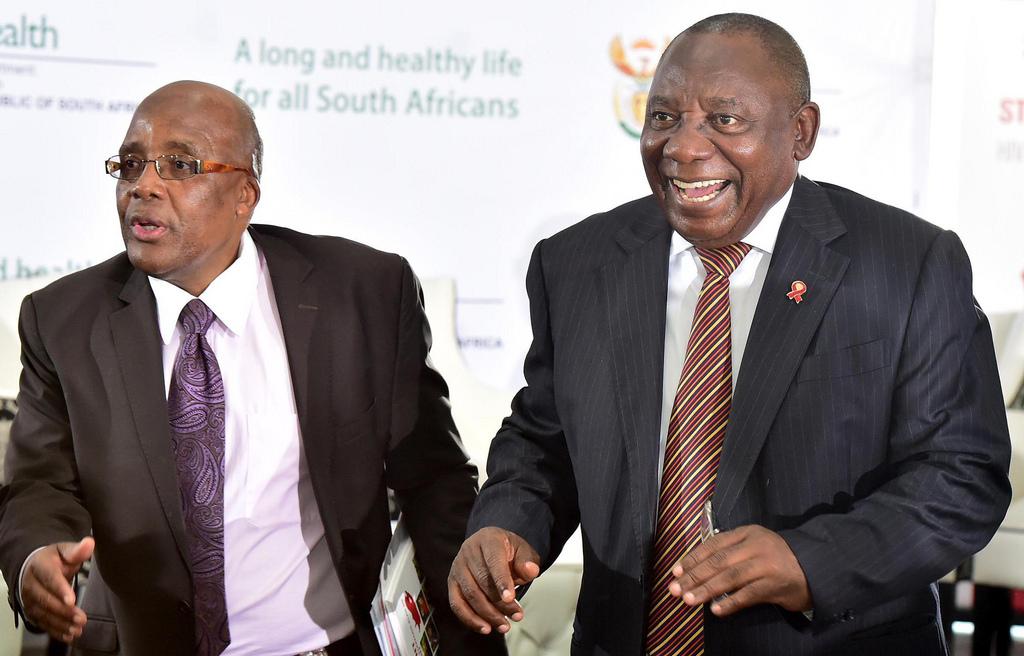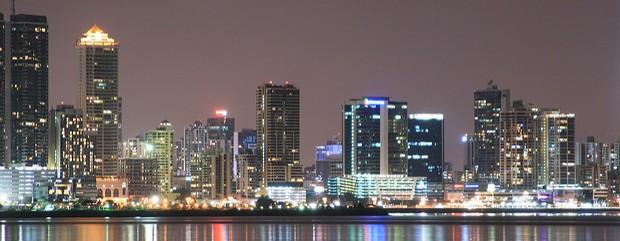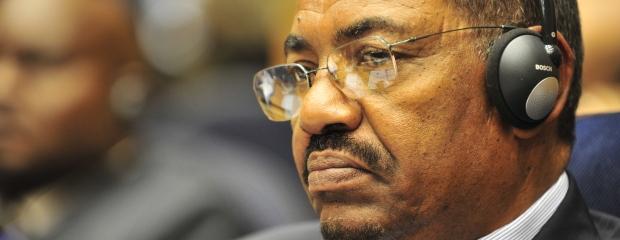Boiling a frog: Ramaphosa’s patient battle for the soul of the ANC

Ramaphosa is now president of a deeply divided party. History suggests he will move cautiously, but effectively.

Cyril Ramaphosa (right) has experience in negotiating tricky political situations. Credit: GCIS
Cyril Ramaphosa’s dramatic election as president of the African National Congress (ANC) last month has raised as many questions as it has answered. Since he defeated rival Nkosazana Dlamini-Zuma at the 18 December party conference, South Africa has effectively had two centres of power: Ramaphosa as ANC president, Jacob Zuma as state president.
There are rumours some members are pushing for President Zuma’s departure before the 2019 elections when he will have to retire. This would pave the way for Ramaphosa to become state president. From there, he could enact reforms, take control of policy matters, and put his stamp on government.
However, with the party so finely balanced between pro-Ramaphosa and pro-Zuma factions, this possibility cannot be counted on and would have to be handled very delicately. The National Executive Committee’s (NEC) top six positions, for instance, are evenly split. Ramaphosa has only a slender majority in the broader NEC and other sub-bodies.
This means that although Ramaphosa has succeeded in the tough feat of becoming ANC president, for now, he will still have to engage in numerous trade-offs with Zuma allies going forward. At the same time, he will also have to manage some surprise policies imposed by the state president ahead of the conference, such as the promise to provide free higher education for the poor. Also on his plate are a set of radical policies championed by Zuma allies and adopted at the conference. These include increasing the government’s shareholding in the Reserve Bank to 100% and expropriating land without compensation.
This will all add to the already tough challenges of ensuring economic stability, restoring credibility, and overhauling state-owned enterprises. The upcoming 2019 elections add a further sense of urgency.
For the moment, Ramaphosa will have to navigate these hurdles dragged down by almost half the party. However, President Zuma has notably had some of his authority stifled by recent rulings. The party, for example, has instructed him to comply with a High Court judgment ordering a judicial inquiry into state capture. The investigation is likely to centre in on how the wealthy Gupta family allegedly came to control various key institutions through its corrupt relationship with Zuma.
Another court ruling demanded that Ramaphosa appoint the new director of the National Prosecuting Authority (NPA). The tenure of Shaun Abrahams, an ally of Zuma, was annulled. It was decided the deputy president should pick his successor due to Zuma’s conflicts of interest given the 783 charges of racketeering against him.
And yet another ruling, by the constitutional court, found that Parliament failed to hold the president accountable in a scandal involving the use of public funds for luxury upgrades at his private residence. Parliament was instructed to put in place a mechanism for impeachment, a decision that the new NEC says it will discuss at its first meeting this month.
The negotiator
Ramaphosa thus has a complex web of interests and individuals to manage. But the ANC stalwart may be uniquely well-matched to this unenviable task. The 65-year-old has a long pedigree of negotiating complicated situations with a degree of success.
Under apartheid in 1987, for example, Ramaphosa was instrumental in putting 400,000 miners on the streets for three weeks in South Africa’s biggest ever industrial strike. This inflicted massive damage on an economy already reeling from sanctions and forced industry bosses to offer higher wages.
In 1990, Nelson Mandela made Ramaphosa his right hand man in talks to end apartheid. His opponents were intrigued by his guile in the process. “Day in day out I watched how the ANC negotiators wiped the floor with the National Party’s inexperienced negotiators and how Ramaphosa as the ‘neutral’ chairman was calling the tune and determining the direction of every debate,” reflected former government delegate Gideon Du Plessis.
This matches Ramaphosa’s own descriptions of his political approach. In the memoir of former MP Mario Ambrosini, Ramaphosa is quoted talking of “boiling a frog alive by raising the temperature very slowly”. In a similar metaphor, analyst John Kane-Berman describes Ramaphosa’s approach as incremental and patient, rather than a “big bang” that “frightens the frogs”.
This strategic approach has been on display recently as Ramaphosa has eased his way back into the ANC and now into the presidential position. In last month’s conference, he notably persuaded supporters not to go to court over allegedly missing votes in the election for the new secretary-general post. The result of that vote had been unfavourable, but he calculated that it was worth defusing the tense moment and losing the battle in the interests of winning a wider war.
This thinking was reminiscent of that employed at the end of apartheid when the ANC agreed to a Government of National Unity and various other concessions. Ramaphosa and others figured that these compromises would ease negotiations in the short-term, knowing that over time, power would naturally shift to the ANC anyhow.
Shifting sands
Ahead of the crucial 13 January statement of the NEC, trade-offs are clearly being made. It is unlikely the body’s directives on the state capture inquiry could have been made without tough bargaining with Zuma allies, for instance. Meanwhile, Ramaphosa’s allies would have had to manoeuvre carefully to incorporate key elements of his platform into the final Strategy and Tactics Document, the centrepiece of government policy for the next five years. Three of these strategic priorities are worth mentioning in particular: ending state capture and rooting out corruption; ending patronage in the ANC; and deepening accountability. They are now official government policy.
The balance of forces in the ANC continues, and will continue, to evolve. Speaker of Parliament and outgoing party chairperson, Baleka Mbete, joined Ramaphosa’s camp shortly before the conference. In another twist, David Mabuza, the new party deputy president and Zuma ally, allegedly abandoned the state president’s faction at the 11th hour by “not instructing” his 708 loyal delegates to vote for Dlamini-Zuma.
Ramaphosa appears to have capitalised on these shifts earlier this month by leading a high-powered delegation to Kwazulu-Natal, the heartland of Zuma’s support. There, he was received by the Zulu king, Goodwill Zwelithini, in a symbolic “changing of the guard”. Interestingly, his defeated rival Dlamini-Zuma was at his side, a message that will not be lost on her supporters. Ramaphosa has also been preaching unity since winning the presidency. It is still too early to predict the balance of forces ahead of the 13 January statement and beyond, but further shifts towards the rising centre of power in Ramaphosa (and away from Zuma) may well be in the offing.
But however things pan out in the next few months, history suggests that Ramaphosa will be keeping one eye on the long game. Past experience suggests he will not rush, but look to patiently increase the temperature around Zuma and his allies.






